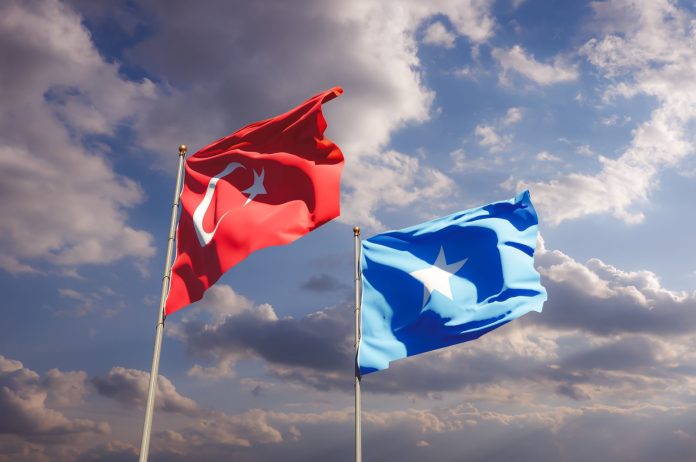Facebook Twitter (X) Instagram Somali Magazine - People's Magazine
Turkey has ramped up its involvement in Somalia, highlighted by a recent defense agreement and a series of economic initiatives. These moves come as Turkey seeks to solidify its influence in the Horn of Africa, a region of significant strategic importance.
Expanding Cooperation with Turkey
In February 2024, Turkey signed a major defense agreement with Somalia, deepening their bilateral cooperation. The agreement includes the training and equipping of the Somali navy and aiding in patrolling Somalia’s extensive 3,333-kilometer coastline. This initiative aligns with Turkey’s growing focus on maritime security, recognizing the challenges of establishing control over land in Somalia’s volatile environment.
This agreement complements Turkey’s July 2024 deal to explore oil and gas off Somalia’s coast, reflecting Ankara’s broader ambitions to secure a role as a major energy player in the region. These partnerships are seen as part of Turkey’s aim to project its influence beyond sub-Saharan Africa and into the Indian Ocean.
Historical Context and Motivations behind the Turkey Alliance
Turkey’s engagement in Somalia began in 2010-2011, a time when the nation was dealing with civil war, the rise of al-Shabaab, and severe famine. Turkey’s entry into Somalia was strategic, capitalizing on the absence of major international players who largely focused on anti-piracy measures and counterterrorism. By stepping in, Turkey boosted its image as a proactive and humanitarian force.
Over the years, Turkey’s involvement has been multifaceted, encompassing humanitarian aid, economic investments, diplomatic initiatives, and support for state-building efforts. Domestically, Turkey’s ruling Adalet ve Kalkınma Partisi (Justice and Development Party) leveraged these efforts to appeal to supporters who view aiding crisis-stricken Muslim communities as both a moral duty and a political win.
Geopolitical Factors
Turkey’s bolstered engagement in Somalia also serves regional strategic interests. From 2016 to 2021, competition with Saudi Arabia and the United Arab Emirates (UAE) saw Somalia emerge as a significant arena of rivalry. Turkey’s investments allowed it to carve out a stronghold in the Horn of Africa, balancing the power dynamics in the region.
The February 2024 defense deal and Turkey’s expanded military presence reflect concerns about regional shifts, including:
Ethiopia’s Growing Influence: Ethiopia’s January 2024 agreement with Somaliland, providing Addis Ababa access to the Red Sea, has raised tensions between Ethiopia and Somalia.
Egyptian Presence: The deployment of Egyptian troops in Somalia has added to Turkey’s strategic calculations, viewed with both concern and irritation by Ankara.
Rising al-Shabaab Threat: The extremist group’s increased activities have underscored the importance of bolstering Somali security.
Ethiopian Troops in Somalia: The role of Ethiopian forces in the African Union’s new stabilization mission further complicates the landscape.
Domestic Benefits for Turkey
Turkey’s involvement in Somalia has also strengthened its defense industry. The Savunma Sanayii Başkanlığı (Defence Industry Agency), directly under President Recep Tayyip Erdogan’s oversight since 2017, has facilitated faster execution of defense deals. This has allowed Turkey to expand its market for defense exports, showcasing products such as drones that have been used in various conflict zones, including Libya and Ethiopia.
These moves have not only elevated Turkey’s status on the global stage but also satisfied domestic business interests, particularly those connected to the construction and defense sectors tied to the ruling political elite.
Turkey’s robust partnership with Somalia demonstrates its strategic ambitions in the Horn of Africa, driven by a mix of geopolitical motives and economic aspirations. As Turkey deepens its foothold in the region, the implications for regional stability and power dynamics remain significant.

